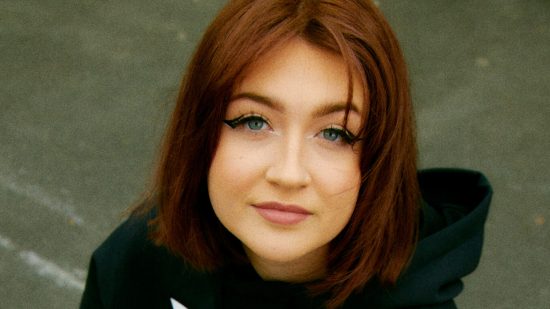Esports in the Commonwealth Games is something I never thought I’d see, but this year the global sporting event added Rocket League, Dota 2, and eFootball to its lineup of disciplines. Representing Team Scotland at the first ever Rocket League Commonwealth Games event, Twitch streamer ‘Jorhdys’ and her squad took home silver medals for their troubles, and were part of what might be a new chapter in esports history.
Despite never having competed professionally, the Scottish streamer for Tundra Esports walked away from the inaugural Commonwealth Games Rocket League championship in second place, beaten out by long-time rivals, Team England. Her journey has likely inspired countless young women across the globe (especially Scottish lassies like me) to consider competitive gaming careers – even if it’s somewhat of an uphill battle.
Following the conclusion of one of mainstream sports’ most prestigious events, Jorhdys sat down with us to discuss what it’s like to finally see gaming recognised on the international stage, and how important inclusivity is in carving out a future for esports professionals.
The inclusion of esports in mainline global sporting tournaments has been a debate since competitive gaming became a thing, and Jorhdys recalls that she didn’t really know what she was signing up for.
“I was under the impression that they were doing a pilot for Commonwealth esports, but I hadn’t seen any marketing or advertising. It was James from Esports Scotland who reached out to me and asked if I was interested in competing and representing Scotland, and asked if I could look for a team of other women to participate.”
When she got to Birmingham she didn’t know how things would play out, but frontrunners emerged relatively quickly. “Straight off the bat it was Team England that everyone was looking at,” she recalls. “Team Canada was probably the most intense game we played, and that was to get into the finals. Funnily enough, I felt calmer playing against Team England in the finals after that!
“We played England on the first day and we didn’t do too bad, but we also didn’t do great. When we faced them again in the finals it was a lot closer, which I was really happy about. It showed that we had a better game plan and had worked out our communication.”
Ultimately walking away with a silver medal, I asked here where she plans to keep it. “Currently it’s in a box on my shelf,” she laughs. “When I got back from Birmingham I was in the airport the next day flying out, but my mum’s going to get a frame for my jersey and get the medal on it.” Fair enough Jorhdys’ mum, I would too.
One of the big discussions that continues to float around the esports sphere is about diversity. You’ve no doubt seen back and forths on social media about all-female leagues, mixed teams, and more, but Jorhdys believes that one of the highlights of the Commonwealth Games’ esports pilot was the vast array of different people it brought together.
“I think our team was one of the most diverse,” Jorhdys states, recalling that her teammate ‘Scottishkelz’ “is a mum, has three kids, and was six months pregnant, but she was the most ambitious gamer there.”
With that diversity comes separate leagues and competitions. The Commonwealth tournament had an open leg for players of any gender, and then a separate women’s competition – something that continues to spark debate across the competitive landscape. Jorhdys, however, knows where she stands.
“I think it’s important that we have the space for women’s tournaments,” she says. “It gives females an opportunity to prove themselves, but again at the end of the day if women want to compete in open tournaments they should do so. Female only tournaments simply provide that safe space for them.
“If I had to say anything to women, it’s that the door is open now, so if the intent is there the opportunities are there, you’ve just got to go for it!”
On a personal level, Jorhdys is an inspiration. At 21 I was at university, severely depressed, and wondering where my life would go next. I found gaming journalism and made a passion into a job at the age of 23, but have always been held back by the fact I’m a woman, and I’m based in Scotland far away from any industry events.
Young women who are looking to make their mark on the esports universe should look to the likes of Jorhdys. Not only has she pushed boundaries by representing not just Scotland but women as a whole, her honesty is commendable. In every way, she’s just an ordinary girl who was given the chance of a lifetime – and she ran with it. Jorhdys’ story is one we are beginning to see more and more of, as initiatives like Valorant Game Changers continue to offer swathes of opportunities to women from every walk of life.
The future looks bright for the female esports players – but it goes without saying that more needs to be done in order to truly put players of every gender on a level playing field.

